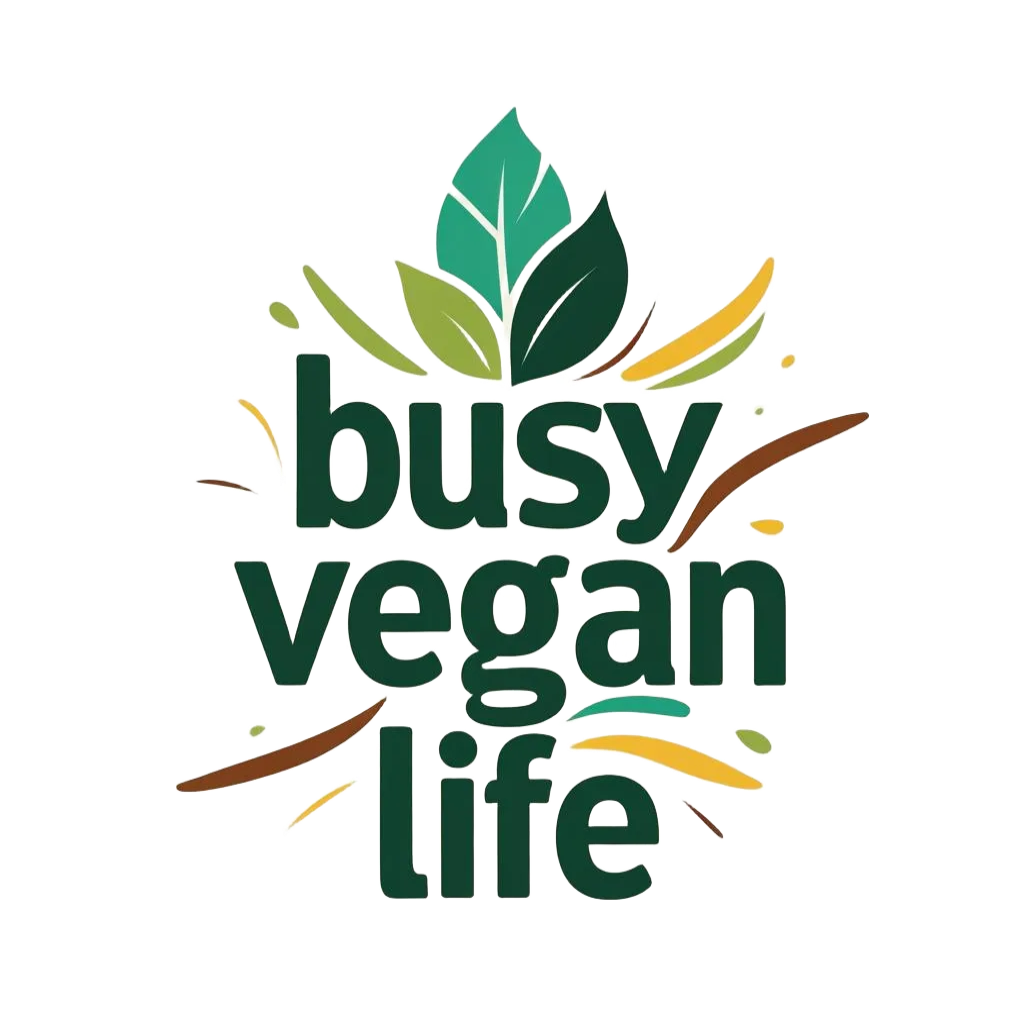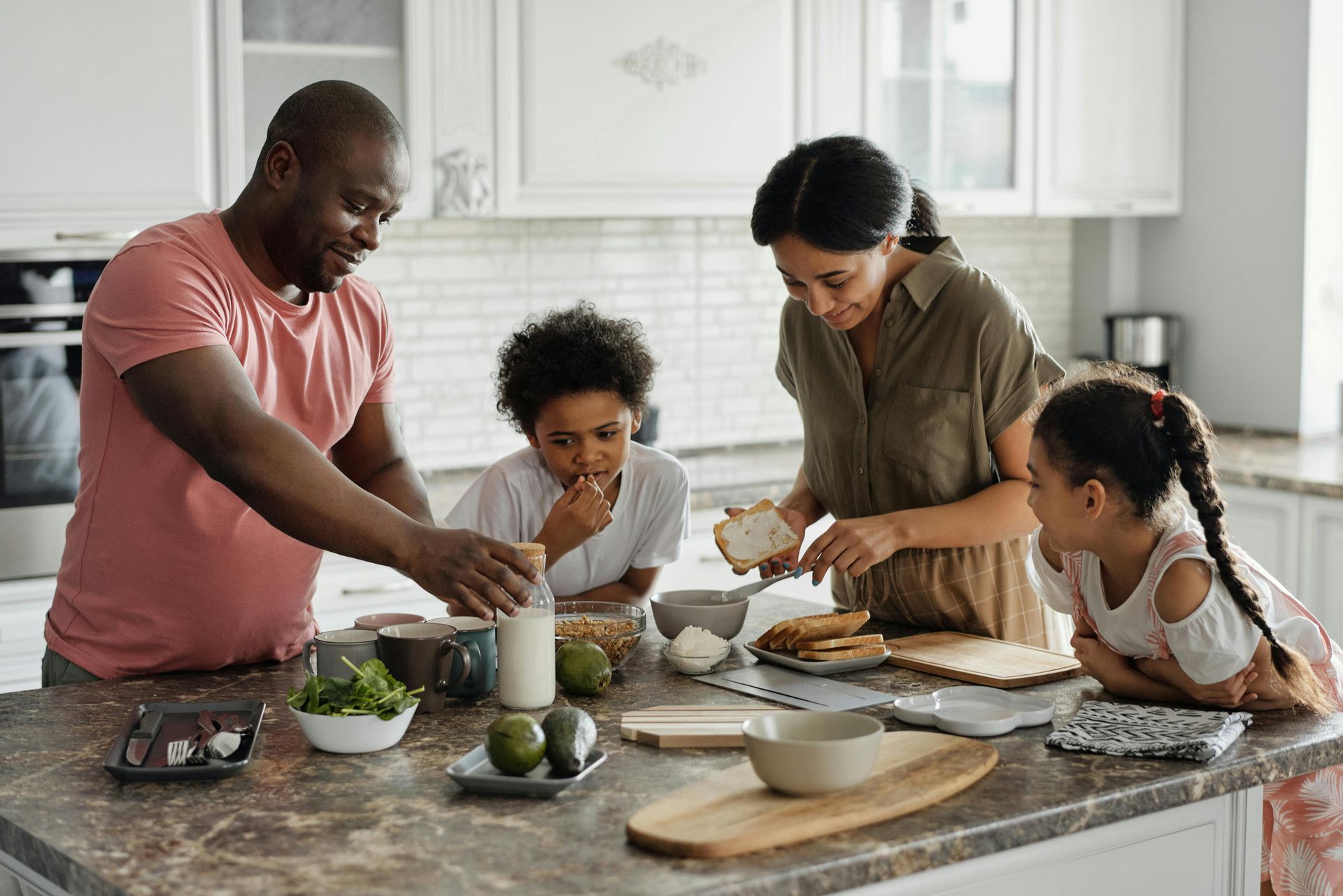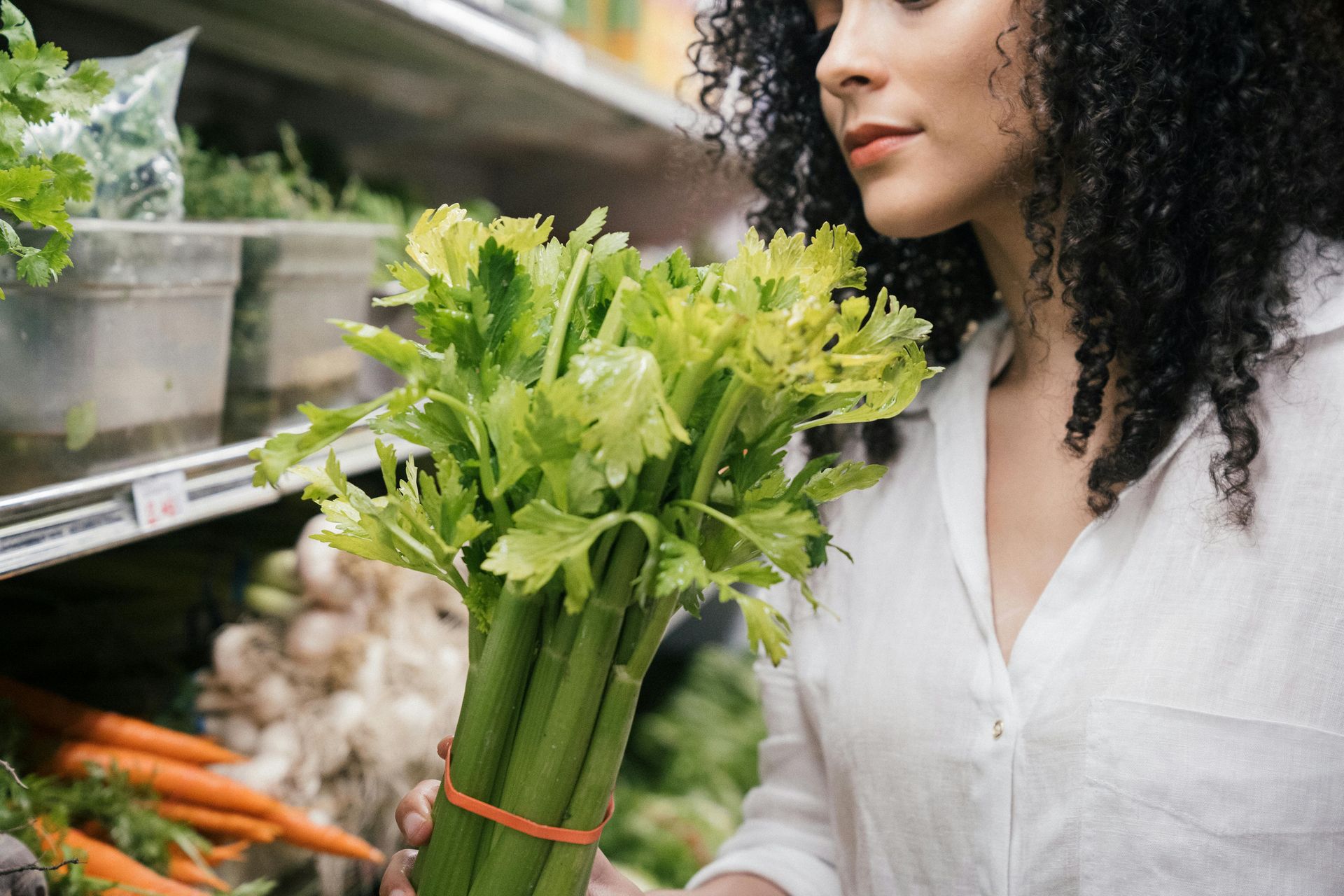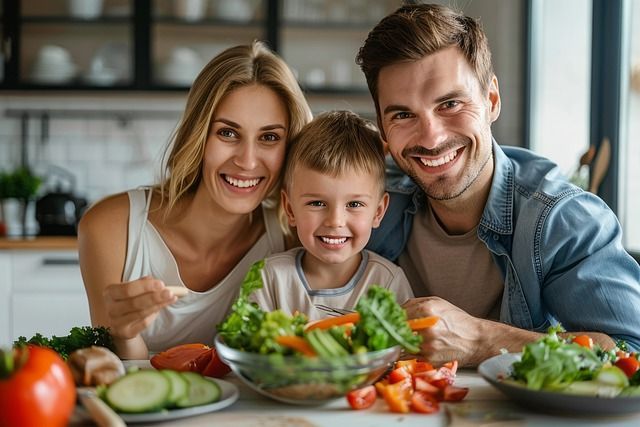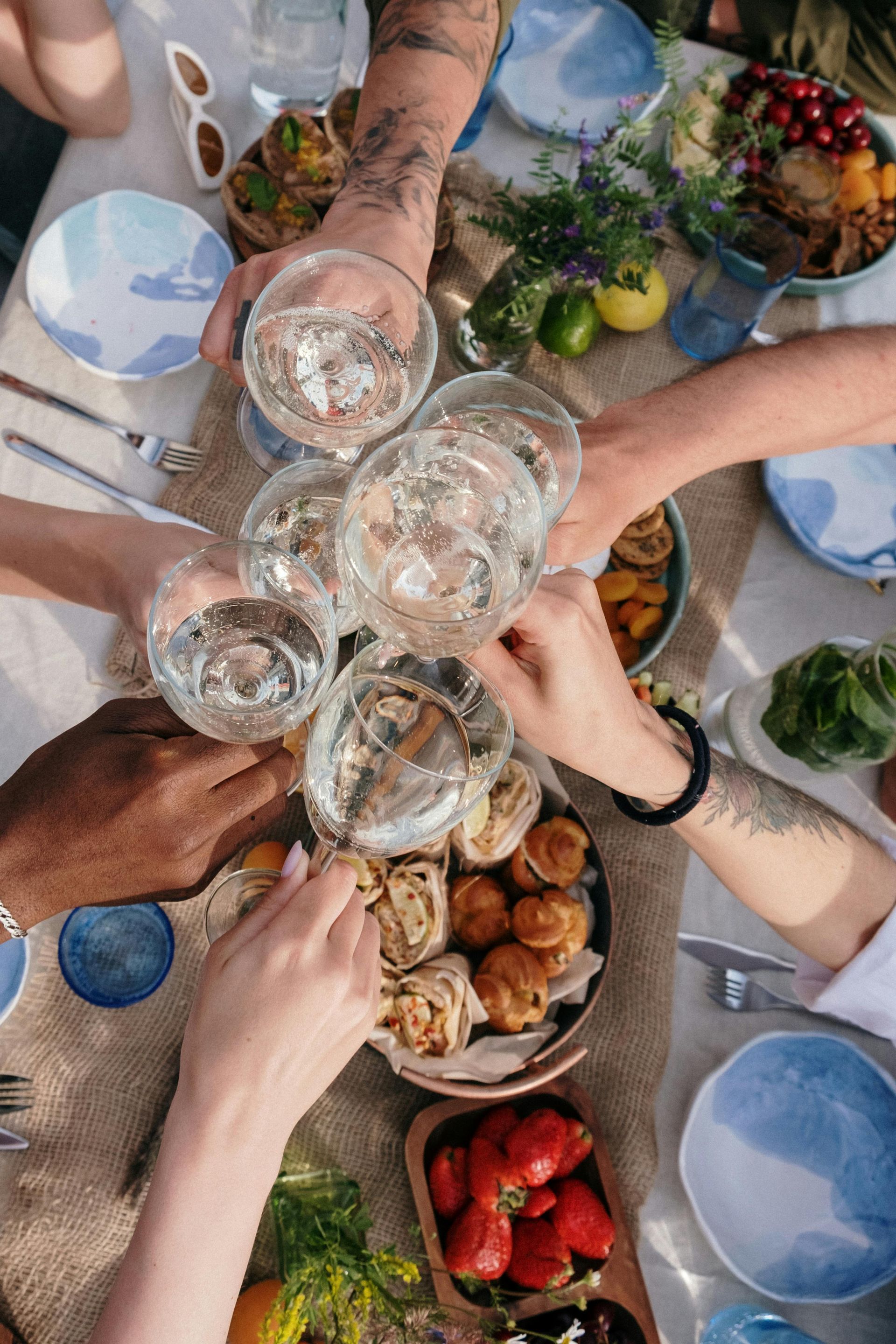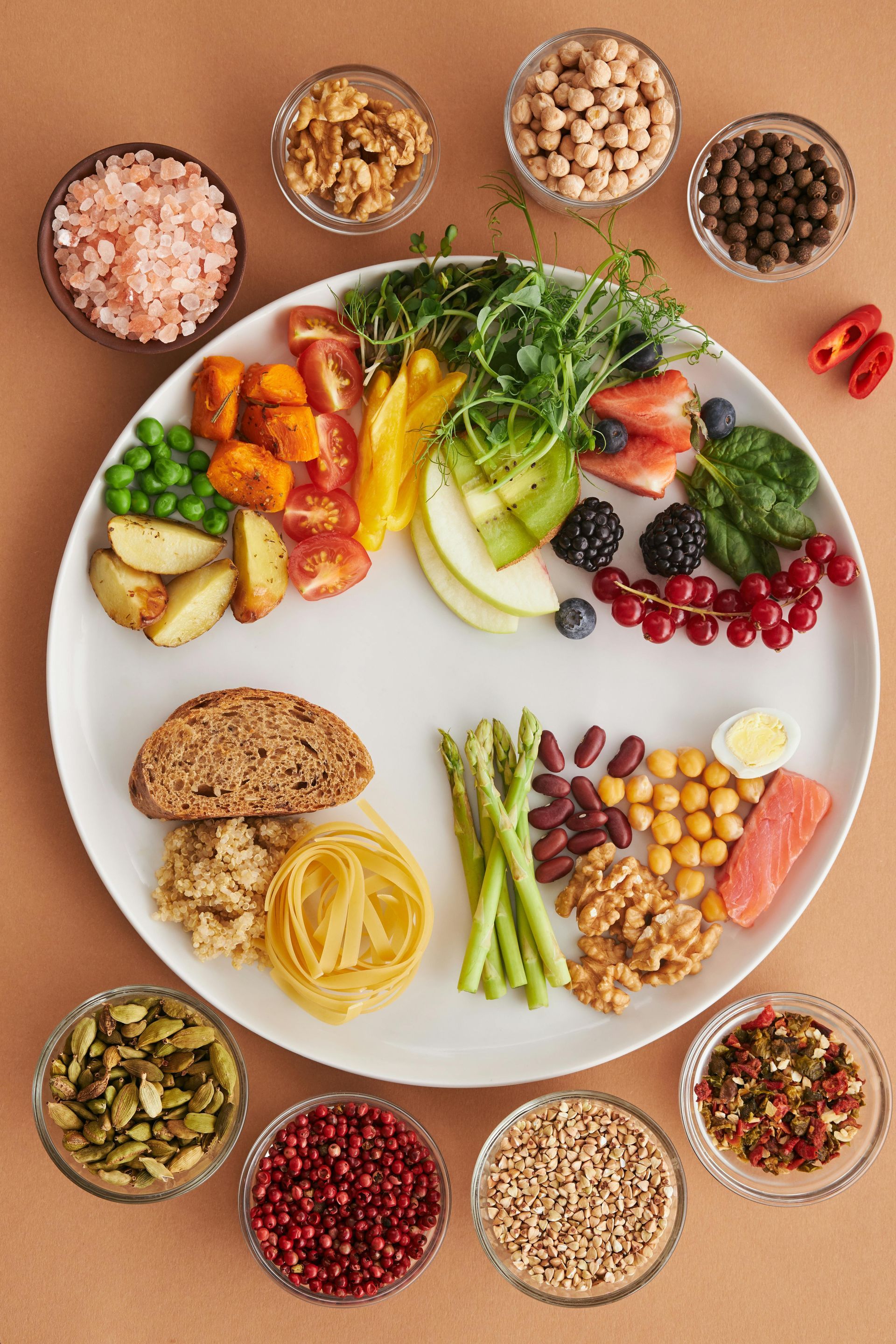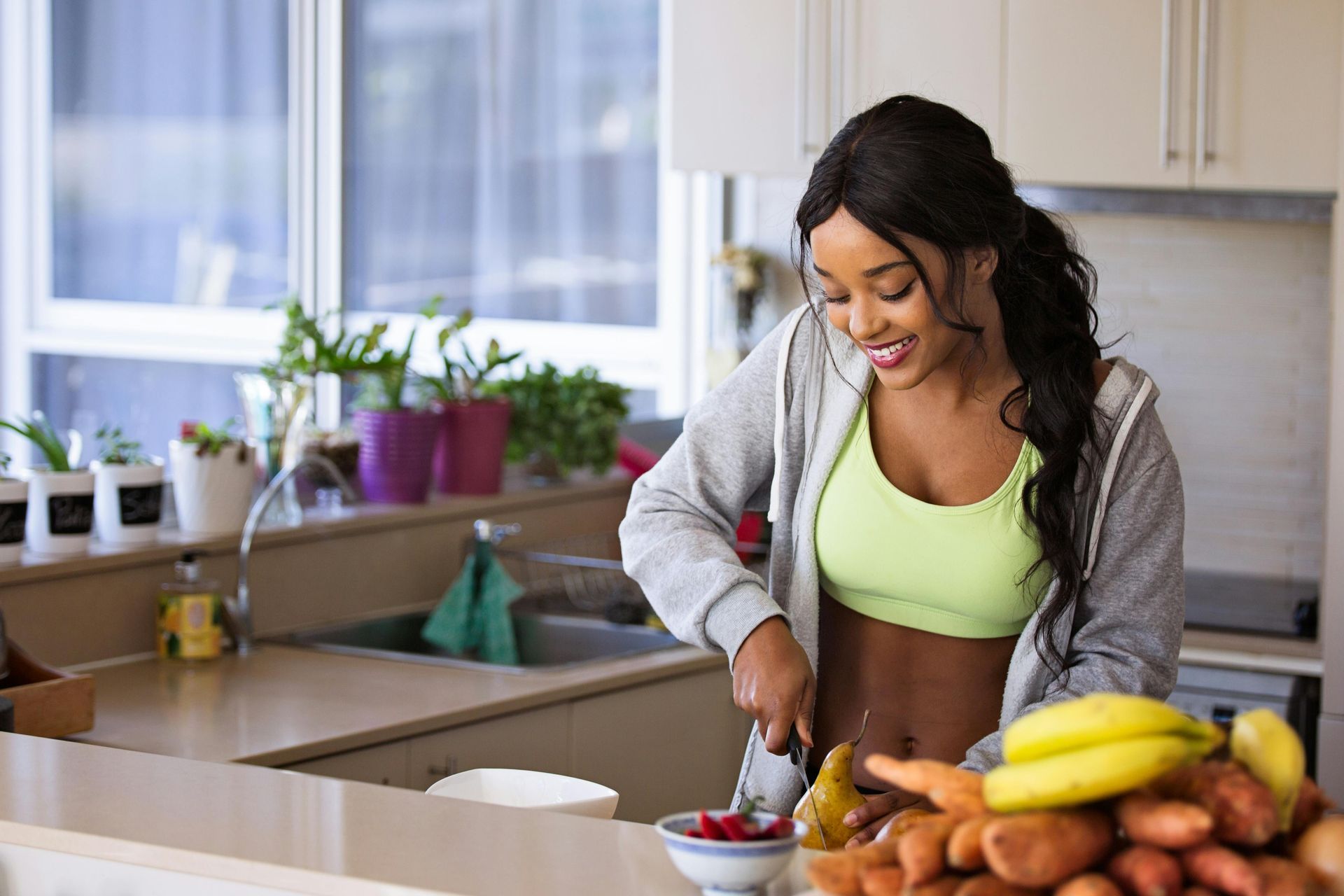The Ultimate Vegan Pantry List for Quick Meal Prep
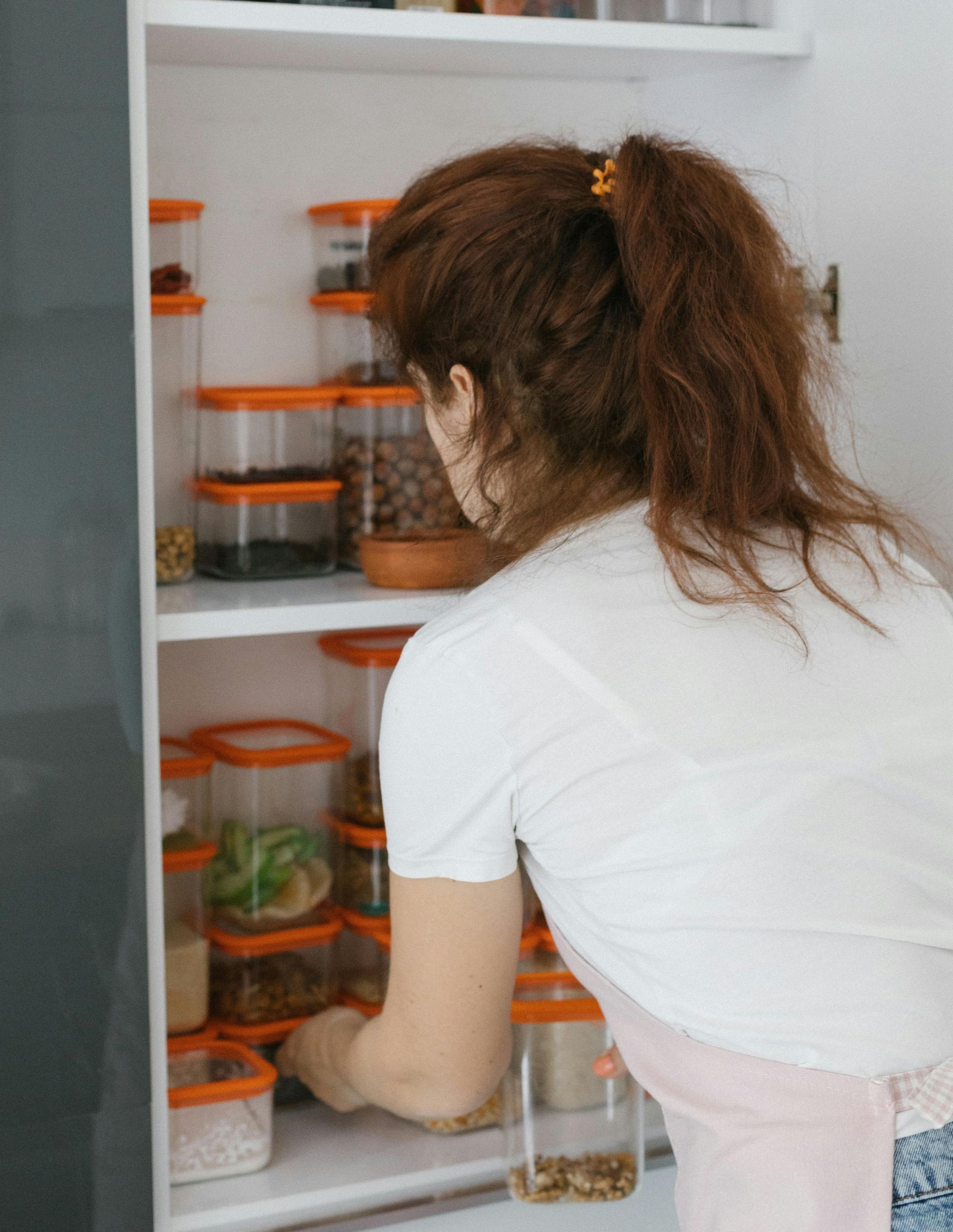
The Ultimate Vegan Pantry List for Quick Meal Prep
Building a well-stocked vegan pantry is essential for plant-based cooking and having key ingredients readily available not only simplifies meal preparation but also inspires creativity in the kitchen. In this article we'll cover how to transform your vegan pantry essentials into your meal prep super station with:
- The ultimate vegan pantry staples list organized by category for easy shopping
- Plant-based meal prep containers and storage solutions that keep food fresh
- Quick vegan meal combinations using only pantry ingredients
- Budget-friendly vegan pantry buying strategies that save money
- Vegan meal prep for beginners with foolproof formulas
Why Your Pantry Is the Secret to Stress-Free Vegan Living
Are you that person ordering takeout four nights a week, spending $200+ monthly on mediocre food, and constantly feeling guilty about wasting groceries? If this sounds like you or someone you know, the vegan pantry organization may be the answer. It’s not just about storage, it's about creating what I call the "Pantry-to-Plate Pipeline." It's a systematic approach that eliminates decision fatigue and makes healthy vegan meal prep flow like clockwork.
Sash’s Story: Sash, a working mom of two toddlers, was spending $400/month on convenience foods and felt constantly stressed about feeding her family. "I had good intentions but no system," she shared. With the Pantry-to-Plate Pipeline, Sash cut her food spending to $180/month while increasing her family's vegetable intake by 200%. Her secret? Creating what we call "toddler-friendly flavor bridges" with pantry combinations that adults and kids both love. Now she meal preps for the week in just 45 minutes every Sunday.
Nate’s Story: Nate, a busy college student, went from eating ramen every night to creating restaurant-quality meals in 15 minutes just by reorganizing his "pantry."
The Psychology of a Successful Vegan Pantry
Research shows that decision fatigue peaks around meal times, which is exactly when we need our brains working best. With only 75 plant-based vegan pantry staples, plus seasonal produce, you can cook a healthy dinner every night of the year. But here's the key: it's not about having 75 different items, it's about having the right items that multiply your meal possibilities.
The "Pantry Personality" Assessment
Before we dive into lists, let's identify your Pantry Personality
Personality Types:
The Spontaneous Chef (40% of busy vegans): You love variety but hate rigid meal plans
The Efficiency Expert (35%): You want maximum nutrition with minimum time investment
The Budget Optimizer
(25%): You prioritize cost-effectiveness and bulk buying
Each personality type needs a slightly different approach to pantry stocking. I'll note specific tips throughout the article.
Layer 1: Foundation (Your Meal Bases)
These are your long-lasting vegan ingredients that form the backbone of every meal:
Grains & Ancient Grains:
- Brown rice and white rice (versatility champions)
- Quinoa (complete protein powerhouse)
- Oats (steel-cut and rolled for different textures)
- Farro and barley (nutty, chewy satisfaction)
- Pasta varieties (whole grain and legume-based)
Legume Library:
- Dried beans (black, pinto, navy, kidney)
- Lentils (red, green, French - each with unique properties)
- Chickpeas (canned and dried for flexibility)
- Split peas (for quick-cooking comfort)
Pro tip: Thrive Market offers organic grains and legumes in bulk at 25-50% off retail prices, perfect for vegan pantry staples on budget.
Layer 2: Flavor Builders (Your Taste Makers)
These vegan seasonings and condiments transform basic ingredients into exciting meals:
Umami Boosters:
- Nutritional yeast (cheesy, nutty flavor)
- Miso paste (fermented depth)
- Tamari or coconut aminos (gluten-free soy sauce alternatives)
- Vegetable broth powder (instant flavor base)
Acid & Heat:
- Apple cider vinegar and rice vinegar
- Lemon juice (fresh or bottled)
- Hot sauce varieties (sriracha, harissa, chipotle)
- Mustard collection (Dijon, whole grain, yellow)
Spice Arsenal:
- Cumin, smoked paprika, turmeric (global flavor trio)
- Garlic powder, onion powder (convenience essentials)
- Italian seasoning, curry powder (instant complexity)
- Red pepper flakes, black pepper (heat and warmth)
Layer 3: Satisfaction Builders (Your Staying Power)
These ingredients provide the healthy fats and proteins that make meals satisfying:
Healthy Fats:
- Tahini and almond butter (creamy richness)
- Olive oil and coconut oil
- Nuts and seeds (almonds, walnuts, hemp hearts, chia seeds)
- Coconut milk (canned for richness)
Protein Boosters:
- Hemp seeds (complete protein, mild flavor)
- Pumpkin seeds (mineral powerhouse)
- Plant-based protein powder (for smoothies and baking)
- Tofu and tempeh (refrigerated staples)
You May Also Like:
What Are the Best Vegan Protein Sources for Busy Families: A Complete Vegan Protein List
The "Busy Vegan Life" BVL Method for Quick Assembly
Wondering what vegan foods can I prep for work lunches? Use the Once your pantry follows the Pipeline system, use the BVL Method to make things simpler!
Base + Vitality (Protein) + Live Components (Vegetables + Fat + Flavor) = Perfect Meal
This system is specifically designed for people who have 15 minutes or less for meal assembly.
The BVL Method in Action:
For Spontaneous Chefs: Mix and match from each category based on what sounds good
For Efficiency Experts: Batch prep each component and create week-long combinations
For Budget Optimizers: Focus on versatile ingredients that work in multiple BVL combinations
Quick BVL Assembly Examples:
The Mediterranean BVL (5 minutes):
Base: Quinoa + Vitality: Chickpeas + Live: Cucumber + olive oil + lemon + herbs
The Asian-Inspired BVL (7 minutes):
Base: Brown rice + Vitality: Edamame + Live: Shredded carrots + tahini + tamari + ginger
The Comfort BVL (15 minutes):
Base: Lentils + Vitality: Hemp seeds + Live: Frozen vegetables + coconut milk + curry spices
Samantha’s BVL Success as a Vegan at Work: Samantha, a nurse working 12-hour shifts, struggled with bringing satisfying lunches that wouldn't leave her crashing by 3 PM. "The BVL Method changed everything," she shared. "I prep my B, V, and L components on Sunday, then mix and match all week. My coworkers went from pitying my 'sad salads' to asking for recipes.
The beauty of BVL? Each component serves a purpose: Base provides sustained energy, Vitality ensures protein satisfaction, and Live components deliver nutrients, healthy fats, and flavor excitement. So there’s no more wondering if your meal will actually keep you full.
You May Also Like:
How to Decline Food at Social Events Without Being Rude
Strategic Shopping: Building Your Pantry Smart
The BVL Pantry Personality Shopping Guide
Spontaneous Chef Pantry Strategy:
Your superpower is culinary creativity, but your challenge is ingredient waste. Focus on versatile staples that work across multiple cuisines:
Essential Flavor Bridges
Tahini (works in Mediterranean, Asian, and Middle Eastern), coconut milk (Thai, Indian, Caribbean), nutritional yeast (Italian, American, fusion)
Spontaneous Success Strategy
Stock 3-4 grains, 3-4 proteins, and 8-10 spices that span different flavor profiles. This gives you 100+ combinations without overwhelming choice paralysis.
Efficiency Expert Pantry Strategy:
Your superpower is optimization, but your challenge is flavor fatigue. Focus on reliable combinations with strategic variety boosts:
Efficiency Multipliers:
Pre-made spice blends, tahini-based dressings (store well, transform anything), batch-cookable grains like farro and quinoa
Efficiency Success Strategy:
Create 3-4 "signature BVL combinations" you can rotate weekly. Then add one "wild card" ingredient monthly to prevent boredom.
Use the AI Vegan Meal Planner to create quick and easy recipes using the groceries you already have in your pantry or on your grocery list.
Budget Optimizer Pantry Strategy:
Your superpower is cost-consciousness, but your challenge is avoiding flavor shortcuts. Focus on bulk ingredients with high flavor impact:
Budget Flavor Maximizers: Buying spices in bulk, making your own nut butters, choosing versatile oils like olive and coconut.
Budget Success Strategy: Invest 70% of your pantry budget in staples, 30% in flavor enhancers. This ratio ensures both satisfaction and savings.
Nate's Budget Success: Nate, a college student, had just $40/week for groceries. The BVL system showed him how to use $10 worth of pantry staples to create meals that taste like $15 restaurant dishes. He actually gained weight (in a good way) and saved money.
Storage Solutions That Actually Work
Vegan pantry storage containers that keep ingredients fresh:
Glass Jars for Visibility:
- Mason jars for nuts, seeds, and small grains
- Large glass canisters for frequently used items
- Clear labeling system with contents and dates
Airtight Containers for Freshness:
- OXO POP containers for grains and legumes
- Vacuum-sealed bags for bulk nuts and seeds
- Freezer containers for pre-cooked components
Vegan pantry organization system:
Zone 1: Daily Essentials (eye-level, easy access)
Oils, vinegars, most-used spices, nutritional yeast
Zone 2: Meal Bases (lower shelves, larger containers)
Grains, legumes, pasta, canned goods
Zone 3: Specialty Items (higher shelves)
Baking ingredients, specialty flours, occasional-use items
Meal Prep Magic: Transforming Pantry Staples
The BVL 90-Minute Pipeline Prep Session (developed specifically for busy vegans):
This isn't your typical "Sunday meal prep." It's a systematic approach to setting up your Pantry-to-Plate Pipeline for the entire week.
Pipeline Station 1: Base Prep (30 minutes)
- Cook 2-3 cups mixed grains (rotate weekly: quinoa, brown rice, farro)
- Prepare 4 cups of assorted legumes (beans and lentils). Vary based on your Pantry Personality.
- Roast seeds and nuts for easy grab-and-go additions
Pipeline Station 2: Vitality & Live Component Prep (30 minutes)
- Make 2-3 different BVL compatible sauces/dressings
- Prepare fresh flavor boosters (herb oils, spice blends, citrus zests)
- Chop sturdy vegetables that improve over time
Pipeline Station 3: Assembly & Systems (30 minutes)
- Portion into plant-based meal prep containers using BVL ratios
- Create "BVL kits" i.e. pre-combined ingredients for one-step meals
- Set up your "Grab Zone" with easily accessible combinations for rushed mornings
David's Story: The father of three, was skeptical about meal prep. He tried Sunday batch cooking but got bored by Wednesday. With the Pipeline system, Instead of making identical meals, he created components to provide me 20+ different combinations. The kids now fight over who gets to help him set up the Pipeline on Sundays. Best of all, the family saves over $200/month and actually looks forward to meals.
Recommended containers: Glass meal prep containers with compartments to prevent flavors from mixing while keeping ingredients fresh.
Budget-Smart Pantry Building Plan
How to meal prep vegan food on budget without sacrificing nutrition:
Week 1-2: Foundation Building ($75-100)*
Focus on grains, basic legumes, and essential oils/vinegars
Week 3-4: Flavor Development ($50-75)*
Add spices, sauces, and nutritional yeast
Week 5-6: Protein & Fat Sources ($60-80)*
Include nuts, seeds, and plant-based proteins
Week 7-8: Specialization ($40-60)*
Add ingredients based on your favorite cuisines
Monthly maintenance cost: $30-50
Restocking and trying new items
*These are estimated prices that will vary according to your location and place of purchase.
Real-World BVL Applications for Every Lifestyle
Busy Parent Pipeline Success:
The "Kid-Friendly BVL Bridge" Strategy
Create pantry combinations that work for both adults and kids by building flavor in layers, mild base that kids love, with adult flavor boosters added separately.
Emma's Story: Emma, mom to a 4-year-old and 7-year-old, was making separate meals daily. The BVL system was a game changer. Example: A big batch of quinoa, black beans, and roasted sweet potatoes on Sunday. The kids eat it plain or with a little nutritional yeast. Emma adds salsa, avocado, and hot sauce to her meal. One prep session, three different satisfaction levels.
Student Budget Pipeline:
The "Dorm-Friendly BVL" Strategy: Focus on shelf-stable ingredients and minimal equipment needs while maximizing nutrition per dollar.
Note for College Students: It may seem hard to eat healthy living in a dorm with just a mini-fridge and microwave. With a limited food budget of just $30/week, the BVL method can buy a $2 bag of lentils + $1 worth of spices to create more satisfying meals than $15 of convenience foods. This makes going from living on ramen and energy drinks to actually having energy for studying doable.
Professional Pipeline Efficiency:
The "Grab-and-Go BVL" Strategy
Create portable combinations that taste great at room temperature and look professional in office settings.
Note to Working Professional: Think in components rather than complete meals. Pack dry ingredients in travel containers and buy fresh components locally. For continental breakfasts, try hemp seeds and nutritional yeast to upgrade it. At the airport food court? Try a salad and add your portable proteins and fats. The goal is to eat better on the road than most people do at home.
Advanced Pantry Strategies
Seasonal pantry rotation for variety:
- Spring: Light dressings, fresh herbs, quick-cooking grains
- Summer: Cold salads, raw preparations, hydrating ingredients
- Fall: Warming spices, hearty stews, root vegetable combinations
- Winter: Rich sauces, comfort grains, immune-boosting ingredients
International flavor profiles using pantry staples:
Mediterranean Base: Olive oil, lemon, herbs, chickpeas, quinoa
Asian-Inspired: Tamari, ginger, rice, sesame, miso
Mexican-Style: Cumin, lime, black beans, nutritional yeast, peppers
Indian-Influenced: Curry spices, lentils, coconut milk, turmeric
Troubleshooting Common Pantry Problems
"My pantry ingredients go bad before I use them"
Solution: Start with smaller quantities and focus on versatile items that appear in multiple recipes. Create a "use first" system with visible reminders.
"I have ingredients but no inspiration"
Solution: Keep a rotating list of 10-15 favorite combinations. When you're stuck, pick one formula and vary the details based on what you have available.
"Healthy eating feels expensive"
Solution: Focus on price-per-serving rather than upfront costs. Bulk buying and cooking from scratch typically costs 60-70% less than convenience foods.
Your BVL Pipeline Success Roadmap
Week 1: Pipeline Foundation Assessment
- Determine your Pantry Personality Assessment (results determine your shopping focus)
- Inventory current pantry using BVL categories
- Purchase your first 5-7 foundation ingredients based on your personality type
- Try 2-3 simple BVL combinations
Success Metric: Complete 3 BVL meals using only pantry ingredients
Week 2: Pipeline Flavor Development
- Add personality-specific spices and condiments
- Experiment with different cuisine BVL combinations
- Document your top 3 successful combinations in your "BVL Recipe Bank"
- Set up your first Pipeline prep session
Success Metric: Create one Pipeline prep session that provides 4+ different meals
Week 3: Pipeline Storage and Systems
- Invest in BVL-optimized containers and organization tools
- Create your physical Pipeline zones (Base/Vitality/Live areas)
- Establish your restocking routine based on usage patterns
- Refine your prep timing and efficiency
Success Metric: Complete Pipeline prep in under 90 minutes
Week 4: Pipeline Integration and Mastery
- Plan your first full week using only Pipeline system
- Adjust quantities and combinations based on preferences
- Create your emergency BVL backup plans
- Share your success with our community and get feedback
Success Metric: Complete 5 consecutive days of BVL meals without stress
Download our comprehensive guides:
- The Ultimate Vegan Pantry Shopping List - Organized by store layout for efficient shopping
- 50 Pantry Meal Combinations" - Mix-and-match formulas for endless variety
- Vegan Pantry Organization Template; Zone-based system for maximum efficiency
Beyond the Basics: Premium Additions
Once your foundation is solid, consider these nutritionist-approved vegan pantry additions:
Superfoods Worth the Investment:
- Spirulina powder (nutrient density)
- Cacao powder (antioxidants and mood support)
- Goji berries (vitamin C and sustained energy)
Time-Saving Premium Items:
- Pre-cooked vacuum-sealed grains
- Freeze-dried vegetables for quick additions
- High-quality spice blends
Sunwarrior offers excellent plant-based protein powders and superfood additions that integrate seamlessly with pantry-based meal prep.
Your Next Steps to Pantry Success
Starting this week:
- Choose 10 foundation ingredients from our list
- Set up one organized pantry zone
- Try three different meal combinations
- Track what you love and what you don't use
Remember, vegan pantry essentials aren't just about having ingredients, they're also about creating a system that supports your lifestyle. The goal isn't to stock every item immediately, but to build strategically toward a pantry that makes quick vegan meals feel effortless.
With the right vegan pantry staples, vegan meal prep becomes less important because you can create fresh, satisfying meals anytime. Your future self will thank you for investing in this foundation.
Love what you read? Check out The Busy Vegan Blog and join our email list for more articles with practical solutions for the unique challenges vegans face delivered straight to your inbox.
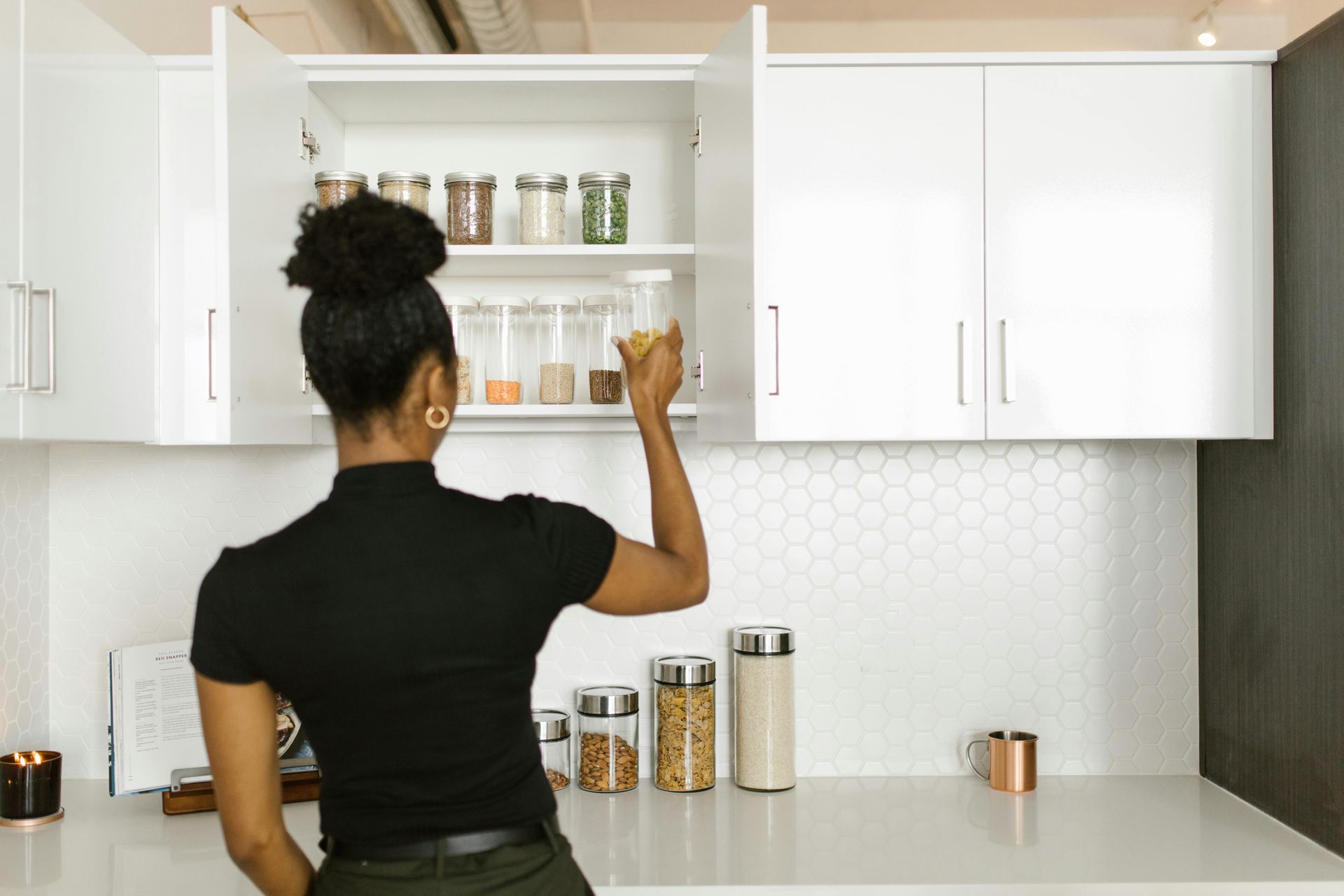
Frequently Asked Questions About The Ultimate Vegan Pantry List
What should I keep in my vegan pantry for quick meals?
Focus on versatile staples that work across multiple cuisines: quinoa, brown rice, black beans, chickpeas, tahini, nutritional yeast, olive oil, and a variety of spices. These eight ingredients alone can create dozens of different meal combinations.
How long do vegan pantry ingredients typically last?
Properly stored grains and legumes last 2-3 years, oils and vinegars 1-2 years, and spices maintain peak flavor for 1-3 years. Glass containers and cool, dark storage extend freshness significantly.
What's the most budget-friendly way to stock a vegan pantry?
Start with bulk bins for grains, legumes, and spices. Buy larger quantities of shelf-stable items you use frequently. Generic brands often offer 30-50% savings on essentials like oils, vinegars, and canned goods.
How do I organize my vegan pantry for easy meal prep?
Create zones based on function: daily essentials at eye level, meal bases on lower shelves, specialty items up high. Use clear containers with labels, and group complementary ingredients together.
What vegan pantry items are worth buying organic?
Prioritize organic for the "dirty dozen" produce when fresh, oils (especially olive oil), and any ingredients you consume in large quantities. For pantry staples, focus organic spending on items without protective peels or processing.
How often should I restock my vegan pantry?
Plan monthly bulk restocking for shelf-stable items, bi-weekly additions for semi-perishables like nuts and seeds, and weekly fresh additions. Track usage patterns to optimize quantities.
What are the most versatile vegan pantry ingredients?
Tahini works in dressings, sauces, and desserts. Nutritional yeast adds cheesy flavor to everything. Coconut milk creates creamy soups, curries, and desserts. Miso paste boosts umami in unexpected places like salad dressings and marinades.
How do I prevent pantry ingredients from going stale or rancid?
Store nuts, seeds, and whole grains in airtight containers in cool areas. Freeze nuts and seeds for extended storage. Use the "first in, first out" principle and label everything with purchase or opening dates.
Subscribe to The Busy Vegan Blog
Thank you for subscribing the Busy Vegan Blog. We'll send you budget-friendly vegan options, quick recipes, meal prep ideas, and helpful tips to support your vegan lifestyle.
Oops, there was an error sending your message. Please try again later.
